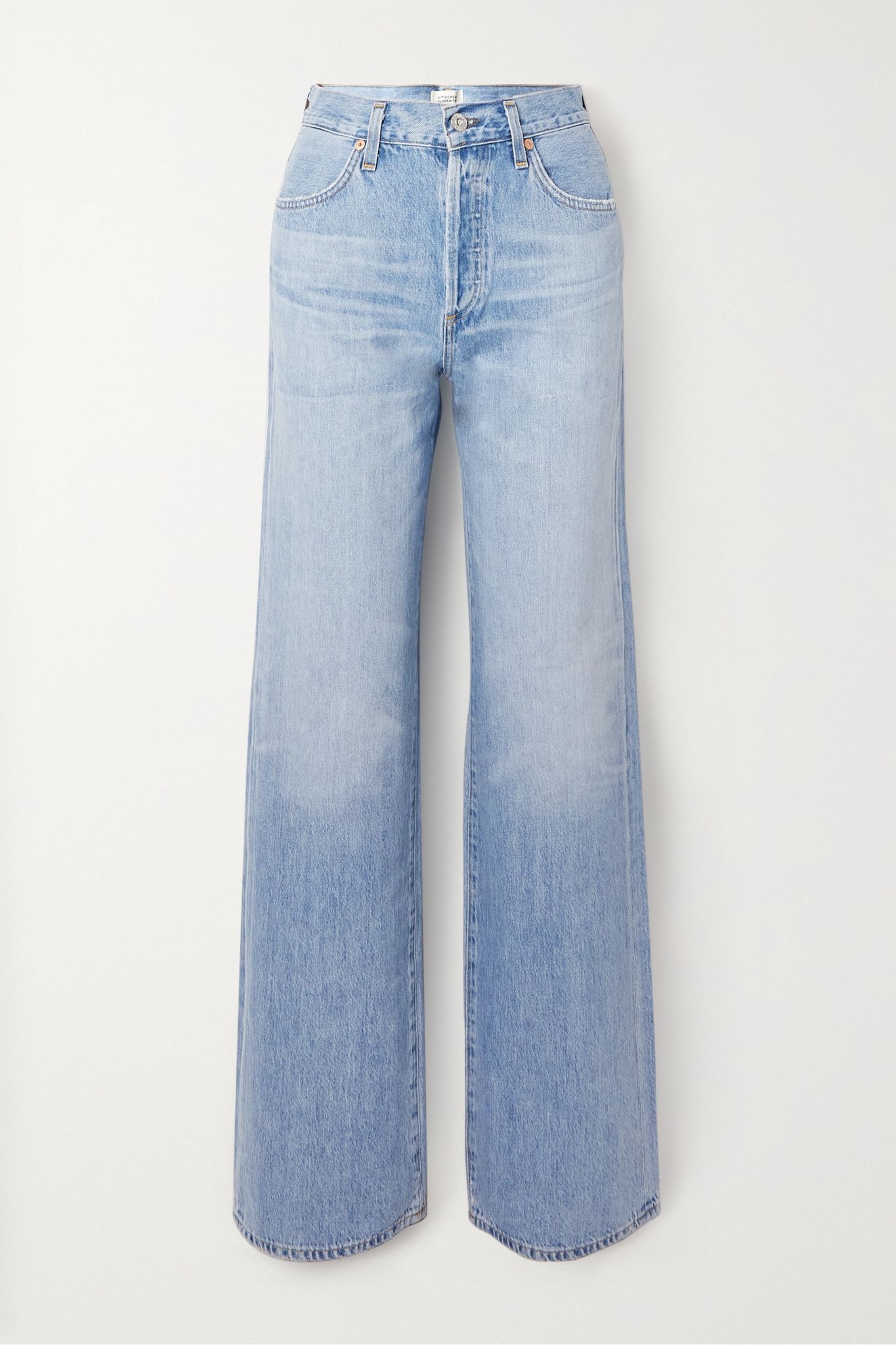Table Of Content

The brand’s off-white is the ultimate in denim purity with no dyes, washes, chemicals, or toxins. Triarchy’s production system uses 85% recycled water by consistently reusing the “thick indigo laden sludge” that unmonitored factories dump into water systems. The young people who fought the Vietnam War and those who protested against it were members of the same generation, and they’d all grown up wearing blue jeans.
Outland Denim
Naturally dyed, organic, and crafted in the US, Rudy Jude offers a nice alternative to the excessive waste produced by children’s clothing. It uses a high proportion of eco-friendly materials including organic cotton, and limits the amount of chemicals used in production. Although the brand primarily focuses on toddler and children’s wear like these adorable jeans, they also make adultwear so the whole family can look good. Seventy + Mochi is a UK-based, conscious and kind denim brand making seasonless, long-lasting denim using recycled materials, kinder production methods, and fashion out of waste.
Can denim ever be equitable?
By the turn of the millennium, jeans trends were moving from an excess of material to “less is more.” Led by L.A. Boutique brands Earl Jeans (launched by Hollywood stylist Suzanne Costas) and Frankie B. (the brainchild of Daniella Clarke, wife of a former member of Guns N’ Roses), the slim-fitting “low-rise” era had begun. Glamorized in films such as “The Wild One” (1953) and “Giant” (1956), the Method actors Marlon Brando and James Dean helped make jeans the uniform of the new generation’s slouching insouciance.
Poisoned Ground: The Tragedy at Love Canal
Nudie Jeans designs 100% organic cotton denim and is transparent about its production. The brand also offers a free repair service, resells second hand products, and even recycles worn out items. Made in Italy, these black slim fit jeans are perfect for everyday wear and tear.

Meet the All-Purpose Jeans that are Reinventing Denim After Nearly 200 Years
The label also receives major bonus points for the eco-friendly system used in the dyeing process to minimize water waste. If you love stretch denim but are conscious of the environmental harm caused during production of those elastic fit jeans, Triarchy created a plastic-free alternative that hugs the body in all the right places. In 2011, founders Mark Adam and Ania Taubenfligel launched the brand, but production came to a halt in 2016 once they realized the negative impact denim creation has on the planet. Now, the label is back and better than ever, thanks to a lot of research and groundbreaking techniques that prioritize sustainability. Infantium Victoria offers beautiful vegan luxury for all ages, including this premium hemp denim jacket with a hood for kids and teens. Its products are certified by Global Organic Textile Standard (GOTS), and it sells previously owned products to minimise textile waste.
From cost breakdowns to factory audits, Everlane prioritizes being open and honest with its customers. The label has also become a go-to for jeans created using renewable energy and air-drying techniques that cut down on CO2 emissions. Our editors curate highly rated brands that are first assessed by our rigorous ratings system. Buying through our links may earn us a commission—supporting the work we do. We’re an online magazine dedicated to covering the best in international product design.
Blue jeans, now called “denim”, were originally made from this fabric and manufactured in the French town of Nîmes (bleu de Nîmes). There is still debate over whether the word “denim” is an anglicized version of the French textile or whether the French name was given to an already existing English product to give it prestige. By the 20th century, “jean” was the term for a wide range of cotton or denim informal trousers.
Brand Ratings
501® Fab Facts: The Story of Selvedge - Levi Strauss & Co - Levi Strauss
501® Fab Facts: The Story of Selvedge - Levi Strauss & Co.
Posted: Tue, 21 Feb 2023 08:00:00 GMT [source]
But by the latter part of the 19th century, blue jeans were poised to become a core product of American mass manufacturing as they rolled out of the same factories operated by the working-class people who wore them. Kowtow designs elegant and timeless womenswear, using organic, fair trade cotton, as well as non-toxic dyes. This a-line panelled skirt features contrast topstitch detailing, made from mid-weight organic cotton denim. This staple piece doubles as a statement, elevating any outfit you pair it with. But before you found the one, you likely had to sort through the many denim brands on the market and engage in a try-on-and-error journey.
ÉTICA is a premium US luxury brand that features innovative design and cutting-edge technology. Form-fitting but never tight, the Scarlet fits slim through the hip with a bit of room through the leg. Hollywood helped romanticize the blue jean in the 1920s and 1930s by putting the trousers on handsome cowboy types played by the likes of John Wayne and Gary Cooper.
Publicity photos of actresses like Ginger Rogers and Carole Lombard wearing jeans helped convince women that the style was for them too. In the 1930s, Vogue gave their seal of approval, calling jeans “Western chic”. In 1942, the American designer Claire McCardell sold more than 75,000 of her denim Popover wrap dress.
The Diana is one of the most sustainable vintage-wash jeans on the market. Made from the cleanest raw materials from across the globe, including 40% recycled cotton and 17% organic cotton, these eco jeans will look good and feel good too. They say Denim was invented in the 17th century, and popularized across parts of Europe and North America in the centuries after that. The material, which was derived while trying to produce a heavy-duty fabric, was perfect for workers in mines, factories, quarries, and gold diggers during the California Gold Rush in the late 19th century. It was durable, tough, comfortable, breathable, and frankly, looked good in both clean or slightly ripped-up styles.
We love this unique bell sleeve denim top made from organic and recycled cotton. By mid-century, these western-inspired working pants were replaced and popularised by youth counter-culture. The “equitable spirit” of denim continued into the late 20th century, with jeans becoming a symbol of fast fashion, accessible to all economic and gender classes. Wares for All Reasons utilizes a proprietary HS Tech stretch denim that combines durability with exceptional flexibility using a combination of 98% cotton and 2% stretchable materials.
For his breakthrough on Broadway in “A Streetcar Named Desire,” Brando wore no underwear during the fitting for his jeans and had the inside pockets removed. Since launching in 2010, Lela Becker and Tim Kaeding have expanded Mother into a full-range ready-to-wear collection that includes just about everything from outerwear to accessories. But it’s the label’s jeans, which support local businesses and manufacturers in Los Angeles, that keep us coming back for more. Maybe you’ve seen Mother’s coveted denim threads on stars like Meghan Markle and Katie Holmes. Since launching in 2014 by Stockholm-based, husband-and-wife duo Elin Kling and Karl Lindman, Toteme has become a go-to for elevated wardrobe staples.
The practice of sharecropping, a vestigial reminder of slavery, was still the reality for many Blacks in the South. Join fans Kate Moss and Rosie Huntington-Whiteley, and get the model-off-duty look with a pair of Goldsign jeans. You’ll have to move quickly to get your hands on a pair of these coveted jeans.

No comments:
Post a Comment